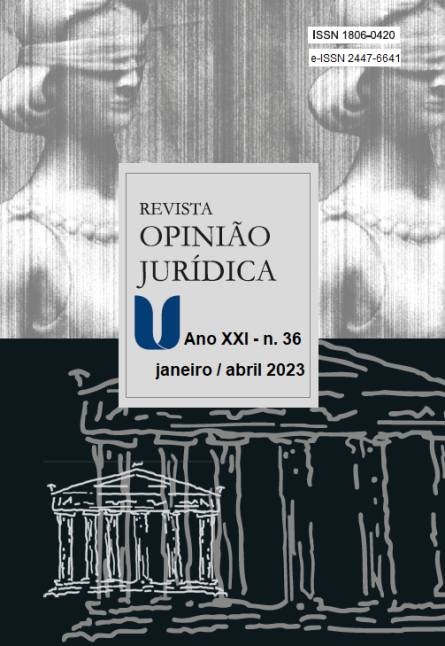ASSOCIATIVE AND (OR) ROLE POLITICAL OBLIGATIONS: A CRITIQUE OF DWORKIN'S THEORY FOR THE OBEDIENCE OF LAW BY CITIZENS AND JUDGES
DOI:
https://doi.org/10.12662/2447-6641oj.v21i36.p55-84.2023Keywords:
political obligations, associative reasons, role reasons, professional ethics, judicial decisionsAbstract
Objective: I suggest that Ronald Dworkin's theory of associative political obligations, known for justifying moral obedience to law by citizens, especially judges, is incorrect. Associative theories propose that the bond formed between individuals in social practices is the factor responsible for justifying moral obligations. However, associative ties will prove to be incompatible with the socio-political context, especially regarding the role played by judges.
Methodology: I present a critical-reflective exposition of the main arguments for and against Dworkin's associative obligations. The theoretical discussion assumes assumptions of analytic philosophy, where I proceed with a normative analysis about this type of obligation.
Results: I try to demonstrate how associative reasons that underlie the theory under discussion are motivated by more intimate and partial social relationships between individuals. Hence, they would be incompatible with the kind of moral and political obligation expected between citizens and judges.
Contributions: the arguments discussed outline the limits and scope of theories based on associative obligations. They also allow for a more careful reflection on the normative justification of the political obligations of citizens and judges.
Published
How to Cite
Issue
Section
License
CESSION OF COPYRIGHTS
The submission of articles to analysis for publication on Opinião Jurídica implies the author(s) transfers copyrights to Centro Universitário Christus – UNICHRISTUS for reproduction, publicizing, distribution, printing and publication, according to the Publication Norm 414R, Opin. Jur., Fortaleza, year 12, n. 16, p.1-414, Jan./Dec. 2014, costs to be bore by UNICHRISTUS, in whatever format or means that may or shall exist, in accordance to articles 49 and following of Federal Law 9.610/98.
1. In ceding copyrights, the author(s) agrees to do so in exclusivity, free of charge and for the totality of the work.
2. UNICHRISTUS may make the work, in its entirety or in parts, available for scholarly purposes, without altering its contents, except for small corrections that are deemed necessary.
3. The cession of copyrights is valid in all countries and for versions of the material in its original language or translated into a foreign language.
RESPONSIBILITY FOR THE CONTENT
By submitting an article, the author(s) declare to have sole responsibility for the content of the piece and is(are), therefore, responsible for any judicial or extrajudicial measures referring to it.
1. In case of joint authorship, all authors are considered collectively responsible, except when proved otherwise.


















